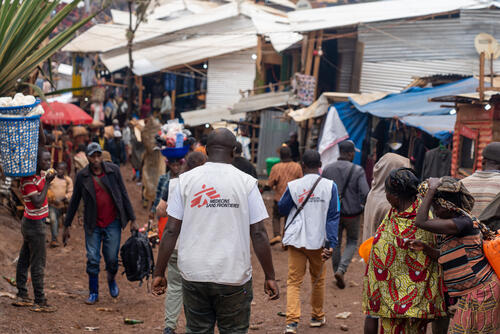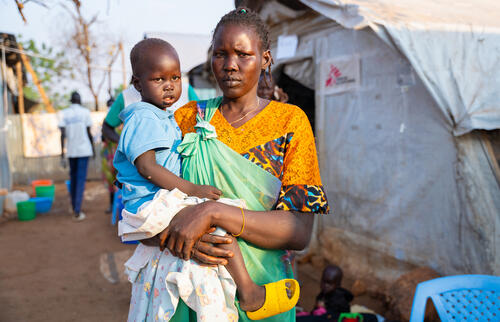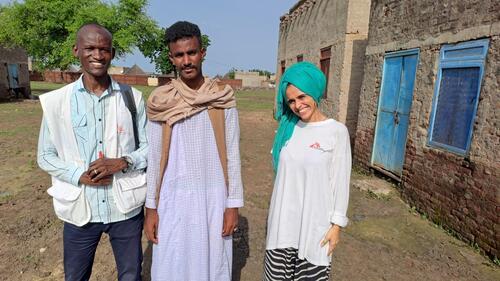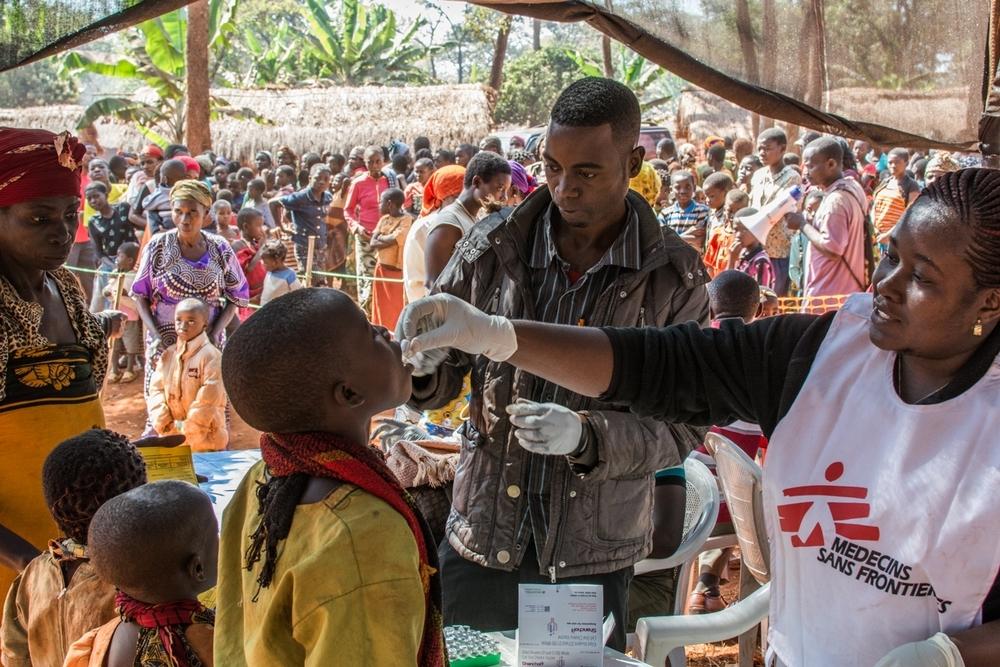Cholera
Cholera is a deadly but treatable disease which affects millions worldwide
Cholera often breaks out when there is overcrowding and inadequate access to clean water, rubbish collection and proper toilets. It causes profuse diarrhoea and vomiting which can lead to death by intense dehydration, sometimes within a matter of hours.
Cholera is a serious risk in the aftermath of emergencies, like the Haiti earthquake of 2010, but can strike anywhere. The situation can be especially problematic in rainy seasons when houses and latrines flood and contaminated water collects in stagnant pools. According to the World Health Organization (WHO), cholera affects three to five million people worldwide and causes between 100,000 and 140,000 deaths per year.
MSF’s water and sanitation engineers and logisticians play a vital role in the prevention of cholera. The disease is treatable and, in many situations, MSF teams have limited the death rate to less than one percent. In 2018, we treated 63,722 people for cholera across the globe.
What causes cholera?
Cholera is caused by an infection of the intestine with the bacterium Vibrio cholerae. The bacterium causes the cells lining the intestine to produce large amounts of fluid, leading to profuse diarrhoea and vomiting.
The infection spreads when someone ingests food or water contaminated with the faeces or vomit of someone carrying the disease.
Contaminated food or water supplies can cause massive outbreaks in a short period of time, particularly in overcrowded areas such as slums or refugee camps.
Symptoms of cholera
Typically, symptoms of cholera appear within two to three days of infection. However, it can take anywhere from a few hours to five days or longer for symptoms to appear.
A cholera infection is often mild or without symptoms but can sometimes be severe, resulting in profuse watery diarrhoea, vomiting and leg cramps.
The patient rapidly loses body fluids, leading to dehydration and shock. Without treatment, they may die within hours.
UP TO 4 MILLION
CHOLERA CASES ANNUALLY
UP TO 140,000
DEATHS EACH YEAR
1%
FATALITY RATE WITH PROPER TREATMENT
Diagnosing cholera
Cholera can be diagnosed by examining stool samples or rectal swabs but, due to the fast-acting nature of the disease there is often little time to do so. In epidemic situations, a diagnosis is often made by taking a patient history and conducting a brief examination, with treatment given before there is time for a laboratory to confirm the diagnosis.
Treating cholera
Cholera can be treated simply and successfully by immediately replacing the fluids and salts lost through vomiting and diarrhoea – with prompt rehydration, less than one per cent of cholera patients die. Cholera victims are always treated with oral rehydration solutions - prepackaged mixtures of sugars and salts that are mixed with water and drunk in large amounts. Severe cases will need these fluids to be replaced intravenously via a drip, and antibiotics are sometimes administered.
MSF has treated cholera outbreaks in Algeria, Angola, Cameroon, the Democratic Republic of Congo, Haiti, India, Kenya, Pakistan, Papua New Guinea, Somalia, South Sudan, Uganda and Zimbabwe.
Cholera: News and stories

Lomera, South Kivu: First came the gold rush, then the cholera

US Aid Cuts: A growing health and humanitarian emergency



